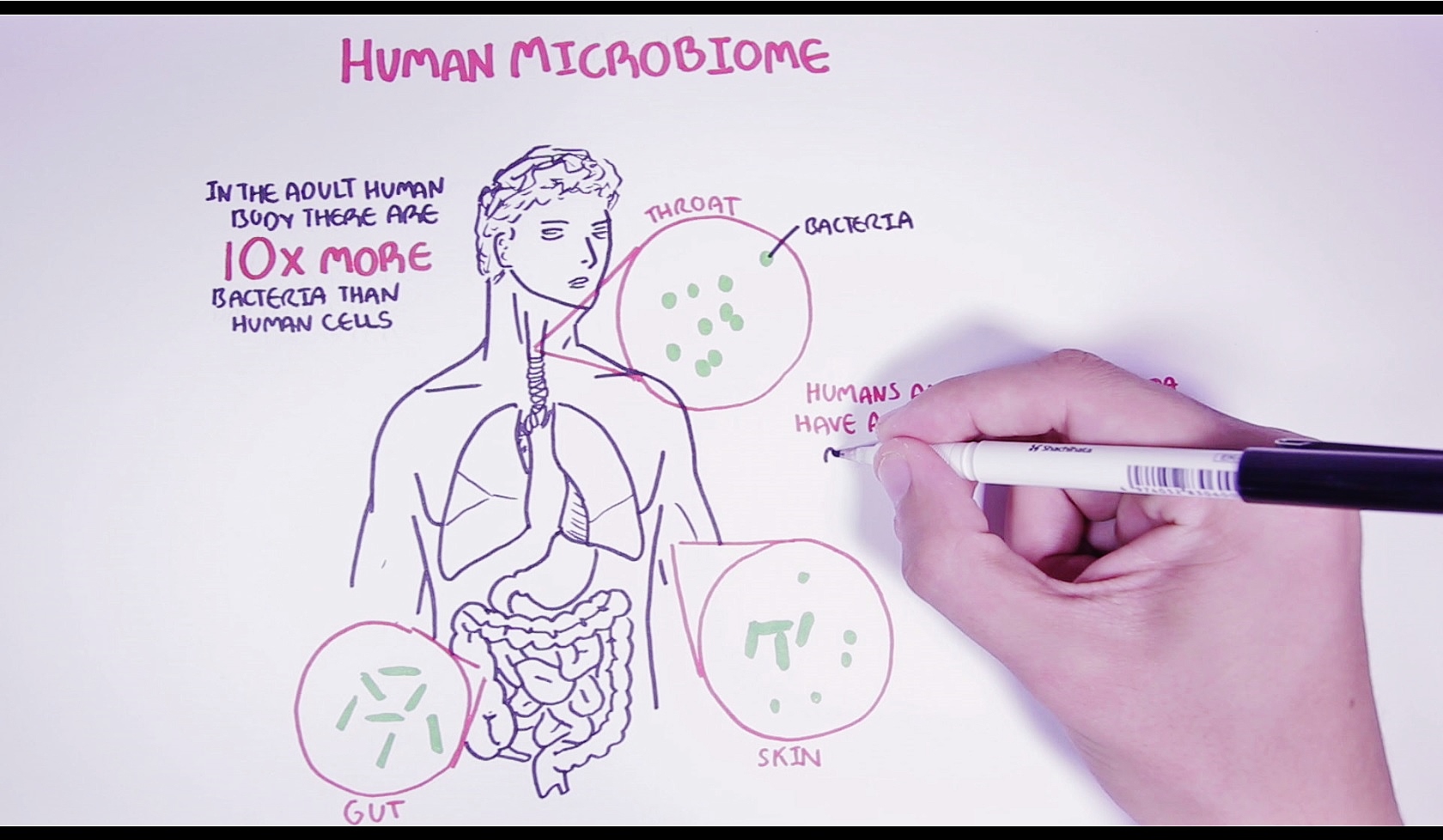
You should never feel lonely when there are billions of tiny lifetimes playing out in your insides.
Welcome to the third installment in our four-part animated series on the digestive system. Today’s episode is all about the Gut Microbiome. As we learned last week, we have many millions of bacteria in our insides. And before you freak out and try to kill them with an antibacterial colonic irrigation, let us stress: you need them!
In our current germaphobic Zeitgeist, it might seem counter-intuitive to put these tiny little creatures on a pedestal — but there is a growing body of research pointing to their importance for a healthy digestive system (see video below).
There is a special density of bacteria – in number and species diversity – in our large intestine, or colon. These microbes serve a type of extra-digestive digestive system, breaking down foods that our own bodies are unable to.
In fact, most of the energy used by our large intestinal cells is directly sourced from the bacteria in our guts. Picture that: you’re actually being ‘fed’ by bacteria, utilising the nutrients from their excrement, where normally they’re feeding off our outputs — oh how the tables have turned.
From the food they find in our colon, our residential bacteria produce a fatty acid called butyrate, which is important for our immune function and adiposity, or fat deposition.
You can learn a whole lot more about the importance of our gut microbiomes in this video:
For more animated explanations of our digestive system, visit our YouTube playlist. And for more Hungry Microbiome madness, click here.


1st February 2015 at 7:03 am
Reblogged this on Endometriosis Wellbeing and commented:
Some weekend science coming at you all! Everyone is do obsessed with diets and super foods etc. Let’s get back to basics and learn how our bodies work!